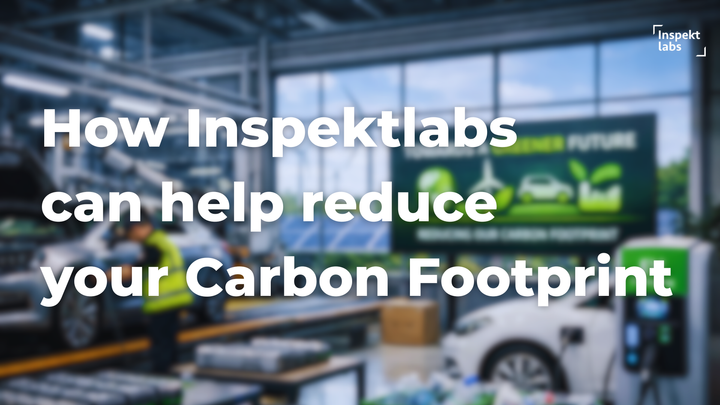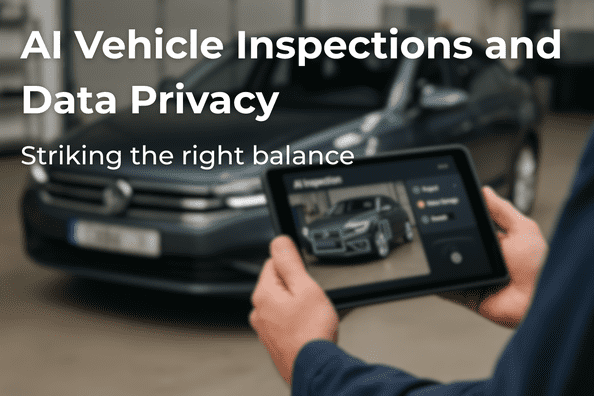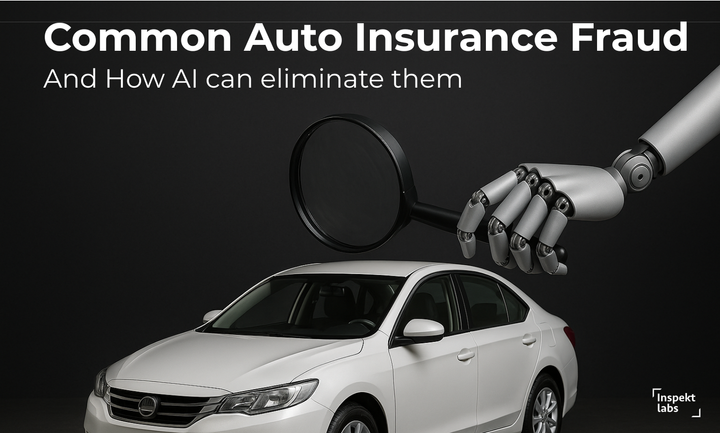3 Reasons Why Digitization Is Dominating The Used Car Industry | Inspektlabs
Consumers have increasingly chosen a digital-first strategy for numerous touchpoints of their purchasing experience in the post-pandemic age. Prospective buyers expect online platforms that provide precise product searches and comparisons, allowing them to make informed choices.

Introduction
The overall tone of the car-buying experience has significantly altered in recent years. Most responsible buyers can now browse and research their vehicles before even visiting a showroom. These changes have been propelled by digitization in the used car industry.
78% of vehicle dealers are eager to alter procedures to suit consumer expectations, and Covid-19 has led to 69% of them adding at minimum one technological component. [1] Why is digitization gaining momentum in the used car industry? It improves customer retention, reduces operating costs, and optimizes vehicle damage detection. What's more, it helps used-car dealers enhance their own sales processes.
Digitalization Is Gaining Momentum In The Used Car Industry
Recent reports reveal that used car prices have risen sharply, and the sector's digitalization is gaining momentum. Digitalization is increasing across the automotive industry. The digital revolution, boosted by the pandemic, has permanently altered how specific industries and consumers function and act. The introduction of technologies like AR/VR, 360-degree perspectives, and standardizations in every field have made digital conceivable in the used car buying industry and hastened the digital transition. Consumers stopped coming to businesses, and dealerships also began shutting down due to the restrictions during the pandemic. So, used car dealerships adopted digital solutions to adapt.

Digital technologies profoundly impact how we buy goods and services, and the used car industry is no exception. As consumers increasingly demand personalized services, the automotive industry is embracing digital technologies. This transformation requires businesses to evolve and incorporate digital technologies into their workflow. However, achieving these goals with traditional techniques is impossible, so embracing a digital strategy for any used car dealership is vital.
The future of used car buying will be highly digitized, enabling consumers to find the best deal and drive away satisfied with the experience. As new technology allows better customer service, it also increases consumer trust. So, buyers will likely spend more time with a brand that offers exceptional value. The future of this industry is ripe for disruption, and it is essential to stay on top of industry trends and developments to stay ahead of the competition.
In 2022, the market size for used car dealers is predicted to grow by 6%. [2] As the industry becomes increasingly connected, it will be necessary for manufacturers to adapt to this new environment and embrace digital technologies. The advent of cloud-based technologies enables businesses to monitor and collect data from each process of a vehicle, enabling continuous improvement. Digitalized businesses also allow brands to integrate their suppliers and make them more responsive to customers' needs. Let us consider some of the benefits digitization offers. Listed below are a few of them:
1. It Improves Customer Retention
To remain competitive and protect profits, used-car retailers must adopt digital capabilities and communicate the value of their products and services. With the growth of digital technology, used-car buyers expect seamless digital experiences. This process is more complex since customers rely lesser on salespeople and can obtain information online. To stay competitive, used-car retailers must ensure that they provide the advantages of a salesperson through digital channels.
Digital transformation is bringing many benefits to the automotive industry. It enables companies to streamline processes and protect archived data while enhancing collaboration. Digitized data helps businesses better analyze and predict customer preferences, resulting in better decisions in a competitive marketplace. It improves efficiency, reduces costs, and helps companies comply with industry regulations. With more online information, customers will be more likely to purchase from a dealer offering higher customer service and satisfaction.
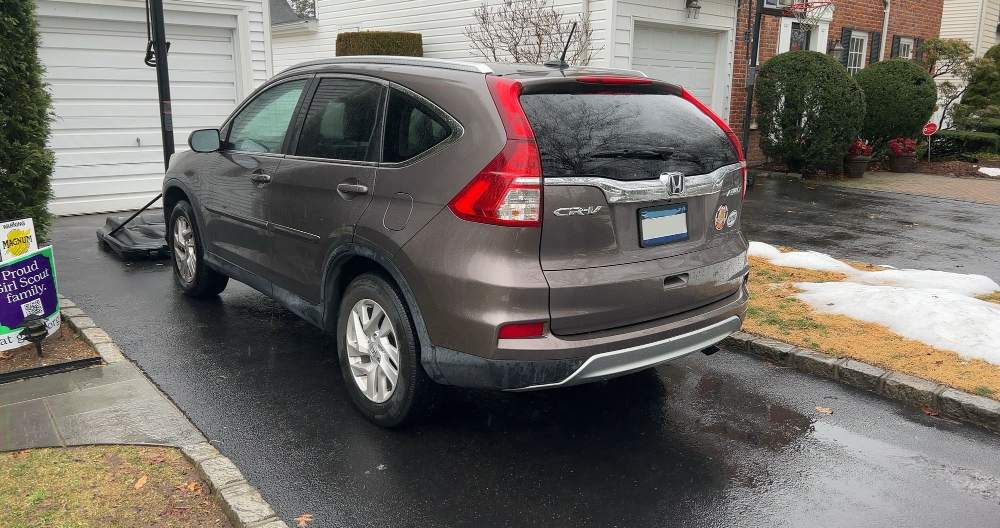
Digitization will create a more robust pool of actionable customer data. Digitalization allows companies to connect millions of customer touchpoints and create a digital vision of their customers' journeys. This ability helps companies better manage their customer relationships and regain market share. In addition, it can provide dealerships with data about customer satisfaction to optimize their car care offerings. Digitization in the used car industry will improve customer retention through predictive analytics and other digital technologies.
Used car dealerships are increasingly facing challenges related to the increased cost of ownership. Consequently, automotive dealerships must reduce their real estate expenses and storage space. Fortunately, digitization is helping overcome these challenges by assisting them in predicting and planning for future trends. Digitization will improve customer retention and help automotive dealerships compete more efficiently.
2. It Reduces Operating Costs
While the digital transformation of the used car industry is still in its infancy, it will soon change the landscape for used car dealers. Digitalization will improve the automotive value chain and enable service providers to reach new levels of performance and efficiency. Digital transformation reduces operating costs while facilitating better customer relationships and new service possibilities. While many OEMs and service providers have been slowly transitioning to this technology, they are still unsure how to monetize it.
Digital transformation is beneficial not only to dealers but also to OEMs. Digitalization will enable dealers to deploy the latest technologies that increase profitability and extend product life. These new technologies can help reduce operating costs while increasing customer satisfaction and profitability. Since digitization is a beneficial technology for dealers, dealerships should focus on integrating it throughout all aspects of their business.
Used car dealerships can upload all vehicle information on a dedicated website or app. Doing so offers multiple benefits. Dealerships no longer have to print catalogs because they are available online. Furthermore, if extensive details of the vehicle are accessible online, prospective buyers can browse through the information at their convenience. Dealerships can also offer online viewings through video calls, limiting the need for in-person visits. Chatbots can also fill in the shoes of sales representatives to some extent during the initial phase of the process. The presence of these technologies is reducing the need to rely on human beings.
Many prospective buyers also wish to conduct a vehicle history check in addition to taking the car for a test drive. This checks for accidents, vehicle issues, and the history of previous owners with an automobile history report. This examination is possible using online services that can furnish the necessary details.

3. It Improves Vehicle Damage Detection
While many consumers test drive automobiles before buying them, just a tiny percentage have used cars inspected before making the purchase. It is feasible to have sellers cover the examination cost. However, you can save money in the long run, even if you finance the inspection yourself. Digitization is also helping improve this aspect of the used car industry.
There is no universal method to detect vehicle damage, and the automotive industry relies on human labor to perform inspection checks throughout production and distribution. Even then, assigning fault for vehicle damage can be difficult. Therefore, transitioning to automated vehicle inspections is a practical approach. Some traditional players offer digital inspections through photos and videos, but AI damage detection takes digitization to the next level. While remote vehicle inspection has some utility, it can also be unreliable and inaccurate sometimes. For example, with photo-based vehicle damage inspections, evidence can be manufactured to conceal damage on a car. Used car dealers may be incentivized to hide damage on vehicles, so there is a lack of trust with potential buyers. On the other hand, AI inspection streamlines the entire car inspection process and instills confidence in customers and dealerships alike.
Inspektlabs' automated car inspection relies on a 360° video of the car. An artificial intelligence algorithm then processes this video and generates a comprehensive damage report. This algorithm performs using objective metrics. So, it delivers consistent and reliable evaluations. The entire inspection process gets over in minutes using this method. Incorporating this AI vehicle damage inspection technology in the used car sector can lower costs and improve trustworthiness.
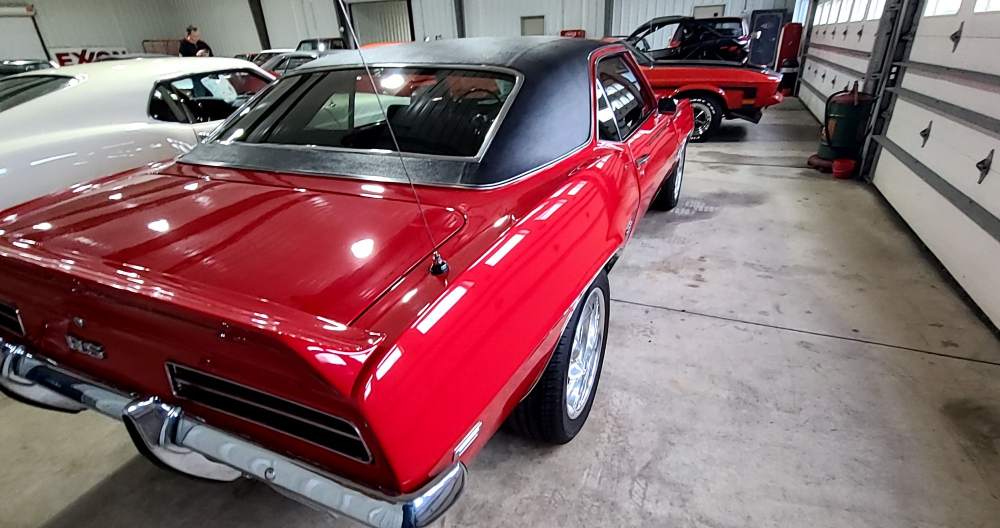
The benefits of this technology go beyond the insurer's bottom line. First, it can speed up lengthy claim settlements and improve efficiency. Second, it can improve customer experience by speeding up fraud detection by allowing insurers to perform additional checks on repair quotes and claim declarations. Third, instant car damage assessment also helps insurance companies by allowing them to choose the best coverage plans and reduce claim processing time. Digitization in the used car industry will provide a new standard for vehicle inspection technology. Furthermore, digital identifiers can identify parts from unauthorized interventions. In short, this system will reduce fraud by improving vehicle damage detection.
Conclusion
Consumers have increasingly chosen a digital-first strategy for numerous touchpoints of their purchasing experience in the post-pandemic age. Prospective buyers expect online platforms that provide precise product searches and comparisons, allowing them to make informed choices. The used car industry is no different, so it must adapt to the evolving market.
References
[1] “Digitization in Automotive Is Still Far off for Back-End Processes and Documentation.” Wolters Kluwer, 3 June 2022, https://www.wolterskluwer.com/en/expert-insights/digitization-in-automotive-is-still-far-off-for-back-end-processes-and-documentation.
[2] Used Car Dealers Industry in the US - Market Research Report. IBIS World, 29 July 2022, https://www.ibisworld.com/united-states/market-research-reports/used-car-dealers-industry/.

